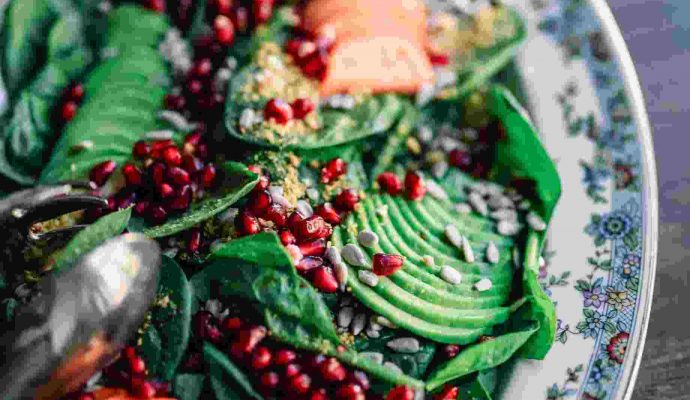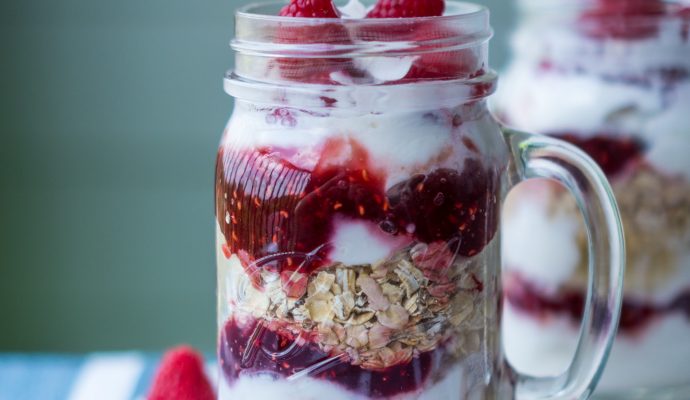When it comes to fighting viruses, everyday precautions such as washing your hands often and avoiding sick people are key. But experts say that boosting your immune system may also give you an edge in staying healthy. Here are my top foods to help armour your immune system.
Vitamin C 
I’ll be talking more about important vitamins further down but wanted to bring your attention to this big one first. Physicians have demonstrated the powerful antiviral action of vitamin C for decades. There has been a lack of media coverage of this effective and successful approach against viruses in general.
Vitamin C was used back in the 1940s to combat polio, a virus-caused illness. In China, a study is under way to see if high doses of vitamin C can help fight off COVID-19. Scientists at the Zhongnan Hospital of Wuhan University are testing its effects on 120 patients who have the virus, giving them daily infusions of 24g of vitamin C for seven days. Results have not yet been published. The government of Shanghai, China has announced its official recommendation that COVID-19 should be treated with high amounts of intravenous vitamin C (https://www.greenmedinfo.com/blog/shanghai-government-officially-recommends-vitamin-c-covid-19.2)
Foods rich in vitamin C include:
- Broccoli, cauliflower, kale
- Cantaloupe, strawberries, kiwi, oranges, papaya
- Red, green and yellow peppers
- Sweet potato
- Tomatoes
Increase Your Antioxidants
You need to stockpile natural antioxidants (and not just the packets and tins of pulses!). When you supercharge this “antioxidant potential” you give your immune system a real boost. And, if you’re wondering ‘where have I heard about antioxidants before?’ they’re the things skincare companies tell you their anti-ageing moisturisers are full of to keep your skin looking youthful.
Viruses and bacteria produce oxidants, which are reactive forms of oxygen that damage cells and also age you faster. Simply put, they are bad news. We’re also getting our fill of oxidants from eating chargrilled/ blackened foods, fried fast foods, and breathing polluted air. And maybe you’ve had a less than great diet over the years. Antioxidants mop up the damaging oxidants to help keep your cells healthy. What can happen is that you can end up in a situation where you have too many oxidants and not enough antioxidants.
Scientists use several tests to measure the antioxidant content of foods. One of the best tests is the FRAP (ferric reducing ability of plasma) analysis. It measures the antioxidant content of foods by how well they can neutralize a specific free radical.
High antioxidant foods include:
- 70% + dark chocolate
- Pecans
- Blueberries
- Other berries, especially raspberries and strawberries
- Dark green veggies like kale
- Red cabbage
- Goji berries
- Beets, also known as beetroot
- Green tea- look for decaf if you’re sensitive to caffeine
- Beans
Glutathione – The Master Antioxidant
Glutathione is one of the most important molecules in the body – almost like a magic elixir of health. Too little of it and you’re at risk of developing one of the most feared health conditions facing us today, including stroke, Alzheimer’s Disease, and heart disease.
If you’ve got good enough levels, that’s where the gold is…
But when levels are adequate or high, that’s when the magic happens. You’ll not only have protection from the conditions above, but you’ll have amazing energy, glowing skin, healthy detoxification, strong heart and brain function, and possibly even a longer life!
Glutathione is made up of three amino acids called cysteine, glycine, and glutamic acid (or glutamate). It’s often called the “master” antioxidant because it helps recycle all the other antioxidants in your body like vitamins C and E, as well as alpha lipoic acid and CoQ10.
The immune system relies on white blood cells that produce antibodies to combat bacteria, viruses, and other invaders. Research shows that glutathione primes the white blood cells of the immune system and helps them produce more infection-fighting substances so they can control both bacterial and viral infections.
Foods to increase glutathione
Eating the right foods to naturally increase glutathione will help keep you fighting fit. There are a small number of foods that naturally contain glutathione. These include:
- Asparagus
- Avocado
- Cabbage, Brussels Sprouts, Broccoli
- Spinach
- Garlic, Chives
- Tomatoes
- Cucumber
- Almonds, And Walnuts
Some other foods contain the building blocks needed to make glutathione (they are the pre-cursors – the warm-up act)- the foods containing cysteine and other sulphur-containing foods, and selenium. Good foods to choose are:
- Onions, spring onions, shallots, leeks
- Kale, bok choy, rocket, spring greens, watercress, radishes
Some spices such as turmeric, cinnamon and cardamom – have compounds that can also help to restore healthy levels of glutathione and its antioxidant enzymes.
Alpha Lipoic Acid – Glutathione’s Reloader
Alpha lipoic acid (also called ALA) is a critical co-enzyme that helps to recycle many antioxidants, including vitamin C, E and also glutathione. It is well known for its anti-ageing effects on our cell’s energy factories, the mitochondria.
Good food sources of alpha lipoic acid include:
- Organ meats
• Beef
• Brewer’s yeast
• Broccoli
• Spinach
• Brussels sprouts
• Peas
• Tomatoes
Selenium – Building Block Of Antioxidants
Selenium is an important trace mineral that is key in the production of glutathione (it also happens to be great for thyroid function so if yours is a little off, consider getting more of this antioxidant- a double win).
Good dietary sources of selenium include:
- Seafood
• Oysters
• Brazil nuts
• Eggs
• Mushrooms
• Whole grains
• Organ meats
• Dairy products
Why You Need To Get In More Broccoli
You’ll often find me extolling the virtues of these little trees in relation to women’s health, where it is an excellent detoxifier of oestrogen. When it comes to boosting immunity, broccoli has good levels of antioxidants sulforaphane, lutein and zeaxanthin. Research has also shown that it reduces markers of viral load in the nose. It’s also packed with vitamin C, which is undoubtedly an important nutrient for immune function as well as all the vitamin K you’ll need in a day, and decent amounts of folate, vitamin A, potassium, phosphorous and selenium
Here’s one of my favourite recipes… deliciously simple and the sauce can be used over so many different vegetables. Try it, I promise you won’t be disappointed!
Broccoli With Olive Oil, Garlic And Chilli
Ingredients
1 head of broccoli, broken up into small florets so that they can be cooked within 3 mins
2 minced garlic cloves
2-3 tablespoons extra virgin olive oil
½ -1 teaspoon Chilli flakes, to taste
Sea salt- ½ teaspoon
Method
Steam the broccoli for 3 mins, either in a steamer, or steam fry them by adding 4-4 tablespoons of water to a frying pan with a lid. Drain.
In the meantime, combine all the other ingredients in a small saucepan and heat on a low heat until the garlic becomes fragrant but isn’t browning- keep an eye on your pan as garlic can burn quickly and if you burn the garlic it will have a bitter taste.
Combine everything gently in a bowl and enjoy!
Vitamin D
Loads of research has shown that vitamin D is super important for a healthy immune system and its anti-viral properties have been shown in multiple studies. Getting your vitamin D checked is really important – either your GP can do it or contact me for a home finger prick test.
Vitamin D is often referred to as “the sunshine vitamin” because direct exposure of sunlight onto large parts of the skin is the best source of this nutrient. Your skin has a type of cholesterol that functions as a precursor to vitamin D. When this compound is exposed to UV-B radiation from the sun, it becomes vitamin D. People with darker skin need to spend more time in the sun to produce vitamin D than those with lighter skin. That’s because darker skin has more melanin, a compound that can inhibit vitamin D production.
Food sources include:
- Fatty fish and seafood
- Mushrooms
- Egg yolks
Vitamin A
Vitamin A is involved in the development of the immune system and very important in maintaining the health of the respiratory tract, where viruses enter. It also regulates the growth of viruses and has been effective in the treatment of various infectious diseases.
Food sources of Vitamin A include:
- Cheese
- Eggs
- Oily fish
- Milk products
- Liver and liver products such as liver pâté – this is a particularly rich source of vitamin A, so you may be at risk of having too much vitamin A if you have it more than once a week, depending on how much you eat (this is particularly important if you’re pregnant). This shouldn’t however put you off consuming this important nutrient.
Zinc
Zinc interferes with the four stages of the viral life cycle, including stopping viruses from multiplying, and it may also help stop them from lodging in the mucous membranes of the throat and nose.
The jury is out but Zinc may be more effective when taken in lozenge or syrup form, which allows the substance to stay in the throat and come in contact with the virus.
Food sources include:
- Meat
- Shellfish
- Legumes Like Chickpeas, Lentils And Beans
- Wholegrains
- Seeds And Nuts
- Dairy
- Eggs
Does it matter if I buy frozen veg?
I’m often asked this question in clinic. In short, the answer is no. It might even be the case that frozen veg actually contains more nutrients than fresh. This is because, once harvested, vegetables start to lose nutrients and antioxidants. Frozen vegetables are usually ‘snap frozen’. This is a pretty instant freezing process that preserves nutrients. When you defrost them at home, it means that there’s been minimal loss of nutrients so even though the produce has been frozen, it’s still nutrient dense.
Special Announcement/Offer
I’ve been inundated with questions about how we can boost our immunity and am supporting the wider community by offering one-off 60-minute immune-boosting nutrition sessions at special reduced fees of £65 (I rarely do one-off sessions as people need long-term support, but when I do, the usual fees are £125 to cover my time spent in analysis and prep). We will cover diet, lifestyle and supplement recommendations tailored to your needs. You’ll have a short questionnaire to complete in advance.
If you, your family or friends want to turbocharge your immune system and have a personalised programme, please contact me on 07812 163 324 or email me at info@yournutritionalhealth.co.uk.


